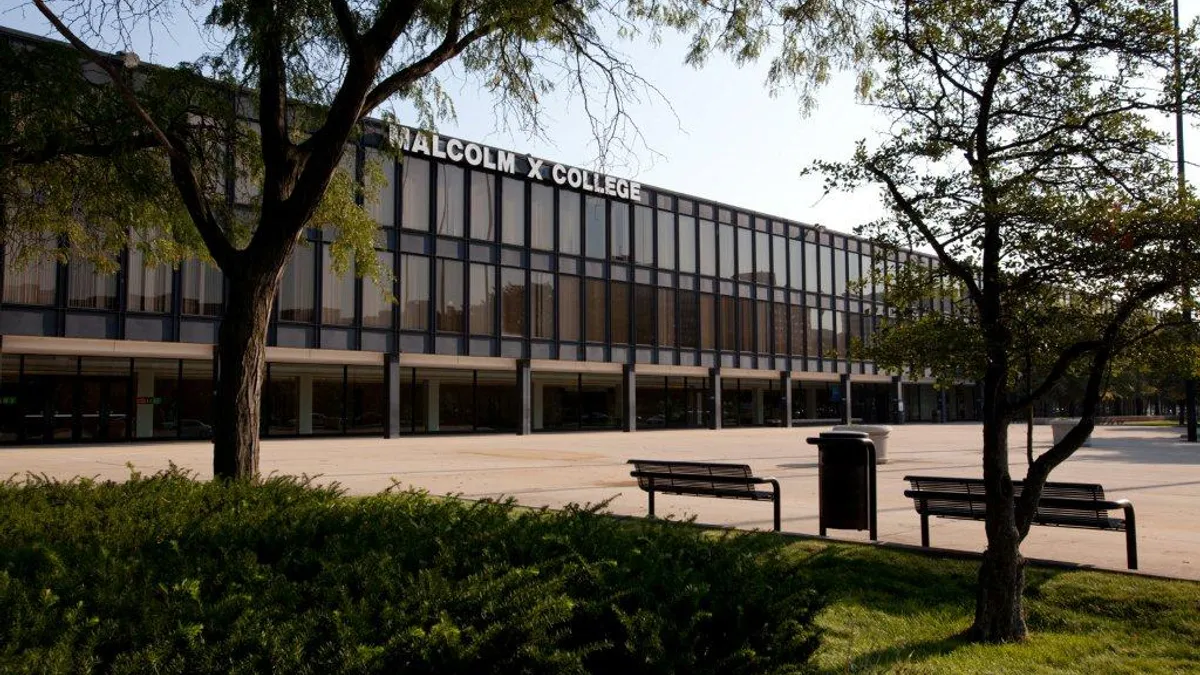Dive Brief:
- A Chicago mayoral candidate, Bill Daley, has proposed combining the city's public K-12 and community college systems with the goal of increasing degree attainment citywide, the Chicago Sun-Times reported.
- Daley — the son of one former Chicago mayor and the brother of another — said merging Chicago Public Schools (CPS) and the City Colleges of Chicago could save up to $50 million. He said that could pay for all CPS graduates to attend community college.
- Other candidates, including a former City Colleges chairman and a past CPS CEO, said the supposed return wouldn't be worth the effort and that the two institutions have their own financial and operational woes. CPS has some 35,000 employees and the seven City Colleges have 4,315 combined.
Dive Insight:
Daley's proposal would expand outgoing Mayor Rahm Emanuel's Chicago Star Scholarship, which pays the cost of tuition and books at the City Colleges for CPS students earning a 3.0 GPA. But its execution would be a challenge and require a change in state law.
In an interview with Chalkbeat, Daley said the new entity could have its own executive-level management and a combined board of K-12 and higher ed stakeholders. The savings, he said, would come from eliminating redundancies. "If you have two widget companies and you put them together, and you have two accountants, you may be able to save on one of the accountants," he told the publication.
Martha Kanter, executive director of College Promise Campaign, told WBEZ that while such a merger could smooth the pathway into college for students at the city's public high schools, it risks closing off other higher education options for low-income students.
Daley is not the only political candidate of late to run on promises of cutting the cost of college.
California's new governor, Gavin Newsom, is proposing to add a second year of free tuition at the state's 115 community colleges, Politico reported. The $40 million program supplements legislation passed in 2017 that gives first-time, full-time students one free year of community college. Following his victory in November, Newsom told EdSource he will "ground all conversations about tuition and financial aid in the full cost of attendance to reflect the actual cost of postsecondary education."
Rhode Island Gov. Gina Raimondo, who was reelected in November, promised to expand her state's free college program to the two public four-year institutions there if voters gave her another term. State lawmakers previously denied her earlier proposal to make two years free at the four-year colleges.
Several states, including New York and Tennessee, have implemented some form of free college program. However, many cover only tuition and fees, leaving out expenses such as books, transportation and rent that can make attending college cost prohibitive. As a result, critics say, they often don't help the low-income students they intend to as most of their tuition costs are met with financial aid.
A report out last month from The Century Foundation makes several recommendations for state and federal policymakers to help ensure free college programs are equitable. Those include giving institutions funding beyond tuition waivers for additional support services that participants often require, such as academic advising, financial aid counseling and mentorships.









